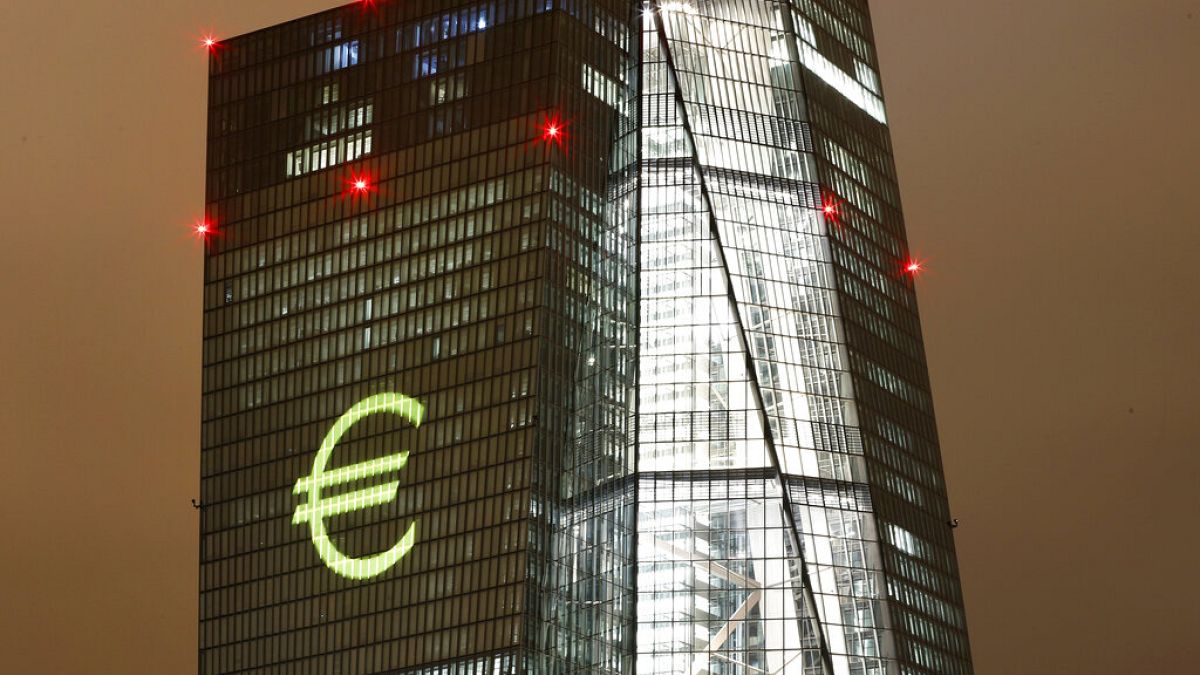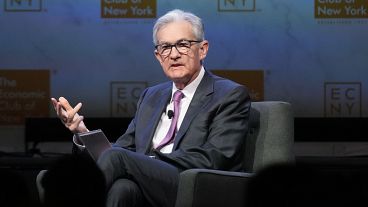The ECB President warned that the European economy most likely experienced stagflation in the last quarter of 2023 and outlined the risks of further economic slowdown.
The European Central Bank (ECB) is proceeding with caution in the face of global economic uncertainties, according to President Christine Lagarde. She has emphasised that, while the disinflation process is underway, the ECB remains committed to a data-dependent approach and will make decisions on a meeting-by-meeting basis.
In its January meeting, the ECB maintained interest rates at their current level for the third consecutive time, in line with market expectations. Lagarde indicated no explicit direction regarding future rate movements, instead focusing on the current economic challenges facing the euro area.
ECB's outlook on inflation, interest rates, and trade disruptions
"The euro area economy likely experienced stagnation in the last quarter of 2023," Lagarde stated in her opening remarks on Thursday, noting that short-term data continues to suggest economic weakness. She also highlighted the risks of a more pronounced economic slowdown due to potential stronger-than-expected impacts of monetary policy and further weakening in the global economy or trade.
Addressing credit dynamics, Lagarde acknowledged some improvement but noted that they remain generally weak. Regarding inflation, she mentioned that recent data largely aligns with the ECB's expectations. The ECB forecasts average inflation at 2.7% for 2024, decreasing to 2.1% in 2025, and stabilising at 1.9% in 2026.
Despite hints at the World Economic Forum in Davos about possible interest rate cuts in the summer, Lagarde clarified that such discussions are currently premature.
"We need to be further along in the disinflation process," Lagarde said, adding that the ECB has to be sufficiently confident that inflation will actually hit the target in a timely manner before discussing rate cuts.
Lagarde also addressed concerns about Red Sea trade disruptions, acknowledging increased shipping costs and delivery delays. She pointed out that these factors account for just over 1.5% of total transportation costs but warned of broader impacts on energy and commodity prices if the situation escalates.
Lagarde emphasised the importance of monitoring wage trends, as they play a crucial role in service sector inflation, which has remained persistently high at 4%. While acknowledging the ongoing rise in wages, the ECB currently downplays the likelihood of these increases having a secondary impact on inflation.
Lagarde plays down recession fears, but markets increase rate cut bets
In response to questions about a potential recession in the euro area, Lagarde referred to varying definitions of recession, recalling Janet Yellen's dismissal of recession claims in the US despite two consecutive quarters of negative growth, due to strong employment figures.
Following the ECB meeting, money markets have increased bets on rate cuts, with expectations of a 50 basis point reduction by June and a 140 basis point cut by December 2024. The euro has weakened against the dollar, partly influenced by stronger-than-expected US economic growth in the fourth quarter of 2023.
In conclusion, Lagarde faces the challenging task of managing market expectations for rate cuts against the backdrop of a slowing eurozone economy. The ECB maintains its data-dependent stance for now and is committed to bringing inflation back to 2%. The next key event will be the ECB's meeting on March 7, when Frankfurt will unveil its new economic projections.



